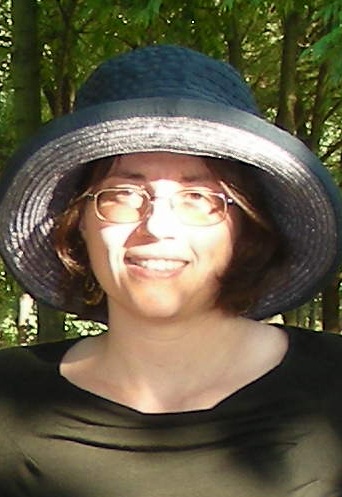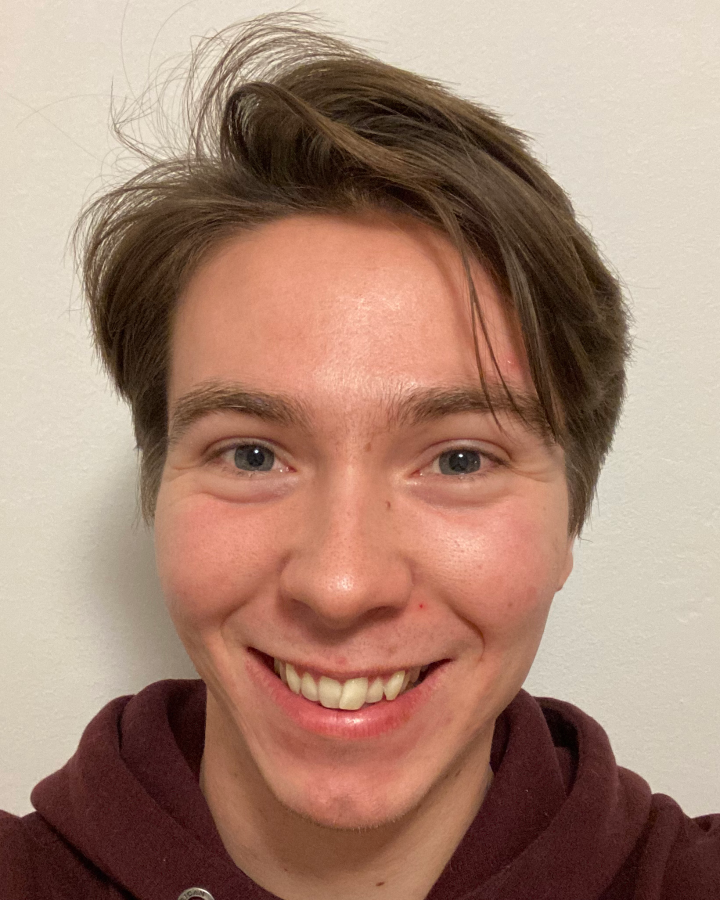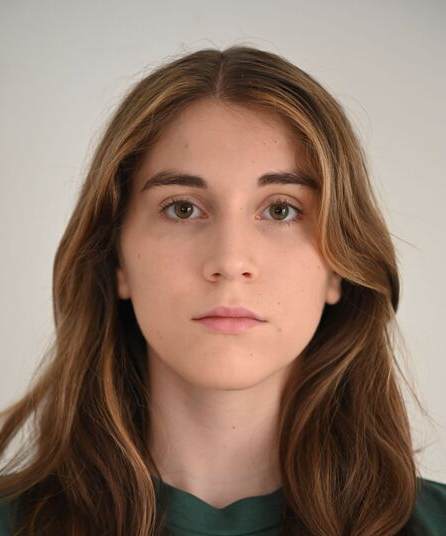Manuel Wimmer

Privatdoz. Mag.rer.soc.oec. Dr.rer.soc.oec.
Manuel Wimmer
- Email: manuel.wimmer@tuwien.ac.at
- Phone: +43-1-58801-18829
- Office: HG0219 (1040 Wien, Favoritenstrasse 11)
- About: UML, Object-oriented Modeling, Domain-specific Modeling, Metamodeling, Model Transformation, Software Engineering, Web Engineering, Model Engineering, Industrial Engineering, Automation Engineering, Multi-disciplinary Engineering
- Orcid:
- Keywords: Model Driven Engineering, Web Engineering, Model Transformation
- Roles: Affiliated
Publications
Why Model Versioning Research is Needed!? An Experience Report
 Kerstin Altmanninger
Kerstin Altmanninger Petra Kaufmann
Petra Kaufmann Philip Langer
Philip Langer Martina Seidl
Martina Seidl Konrad Wieland
Konrad Wieland Manuel Wimmer
Manuel WimmerKeywords:
Astract: The status of current model-driven engineering technologies has matured over the last years whereas the infrastructure supporting model management is still in its infancy. Infrastructural means include version control systems, which are successfully used for the management of textual artifacts like source code. Unfortunately, they are only limited suitable for models. Consequently, dedicated solutions emerge. These approaches are currently hard to compare, because no common quality measure has been established yet and no structured test cases are available. In this paper, we analyze the challenges coming along with merging different versions of one model and derive a first categorization of typical changes and the therefrom resulting conflicts. On this basis we create a set of test cases on which we apply state-of-the-art versioning systems and report our experiences.
Altmanninger, K., Kaufmann, P., Kappel, G., Langer, P., Seidl, M., Wieland, K., & Wimmer, M. (2009). Why Model Versioning Research is Needed!? An Experience Report. In Proceedings of the Joint MoDSE-MCCM 2009 Workshop (p. 12). http://hdl.handle.net/20.500.12708/52774
Keywords:
Astract: Traditionally, models are considered as pretty pictures supporting
merely the documentation of a software development project. With the
rise of model-driven engineering (MDE) this viewpoint has to be
reconsidered. Models become first-class artifacts which yield the
basis for the generation of executable program code. In modern
university curricula of computer science and related fields this
paradigm shift must not be ignored. At the Business Informatics
Group (BIG) of the Vienna University of Technology we offer an
advanced modeling course called Model Engineering where we
elaborate current trends, development, and state-of-the-art
techniques necessary to realize the visions of MDE. In this paper we
report which concrete concepts and approaches we teach and how we
structure and organize a practical hands-on lab where the students
have to build their own model-driven development environment
consisting of their own modeling languages, certain types of model
transformations, and code generation facilities.
Kaufmann, P., Kappel, G., Seidl, M., & Wimmer, M. (2009). Teaching Model Engineering in the Large. In Educators’ Symposium @ Models 2009. Educators’ Symposium @ Models 2009, Denver, USA, Non-EU. http://hdl.handle.net/20.500.12708/52779
TROPIC
 Manuel Wimmer
Manuel Wimmer Johannes Schoenboeck
Johannes Schoenboeck Angelika Kusel
Angelika Kusel Werner Retschitzegger
Werner Retschitzegger Wieland Schwinger
Wieland SchwingerKeywords:
Astract: Model transformation languages, the cornerstone of Model-
Driven Engineering, often lack mechanisms for abstraction,
reuse and debugging. We propose a model transformation
framework providing different abstraction levels together
with an extensible library of predefined transformations and
a dedicated runtime model in terms of Coloured Petri Nets
for transformation execution and debugging.
Wimmer, M., Kappel, G., Schoenboeck, J., Kusel, A., Retschitzegger, W., & Schwinger, W. (2009). TROPIC. In Proceeding of the 24th ACM SIGPLAN conference companion on Object oriented programming systems languages and applications - OOPSLA ’09. ACM. https://doi.org/10.1145/1639950.1640013
Right or Wrong? - Verification of Model Transformations using Colored Petri Nets
 Manuel Wimmer
Manuel Wimmer Angelika Kusel
Angelika Kusel Werner Retschitzegger
Werner Retschitzegger Johannes Schönböck
Johannes Schönböck Wieland Schwinger
Wieland SchwingerKeywords:
Astract: Model-Driven Engineering (MDE) places models as firstclass
artifacts throughout the software lifecycle requiring the
availability of proper transformation languages. Most of today's
approaches use declarative rules to specify a mapping
between source and target models which is then executed
by a transformation engine. Transformation engines, however,
most often hide the operational semantics of the mapping
and operate on a considerable lower level of abstraction,
thus hampering debugging. To tackle these limitations we
propose a framework called TROPIC (Transformations on
Petri Nets in Color) providing a DSL on top of Colored Petri
Nets (CPNs) to specify, simulate, and formally verify model
transformations. The formal underpinnings of CPNs enables
simulation and veri fication of model transformations.
By exploring the constructed state space of CPNs we show
how prede fined behavioral properties as well as custom state
space functions can be applied for observing and tracking
origins of errors during debugging.
Wimmer, M., Kappel, G., Kusel, A., Retschitzegger, W., Schönböck, J., & Schwinger, W. (2009). Right or Wrong? - Verification of Model Transformations using Colored Petri Nets. In Proceedings of the 9th OOPSLA Workshop on Domain-Specific Modeling (DSM´09). Helsinki Business School. http://hdl.handle.net/20.500.12708/52798
A Petri Net Based Debugging Environment for QVT Relations
 Manuel Wimmer
Manuel Wimmer Johannes Schoenboeck
Johannes Schoenboeck Angelika Kusel
Angelika Kusel Werner Retschitzegger
Werner Retschitzegger Wieland Schwinger
Wieland SchwingerKeywords:
Astract: In the Model-Driven Architecture (MDA) paradigm the Query/View/Transformation (QVT) standard plays a vital role for model transformations. Especially the high-level declarative QVT Relations language, however, has not yet gained widespread use in practice. This is not least due to missing tool support in general and inadequate debugging support in particular. Transformation engines interpreting QVT Relations operate on a low level of abstraction, hide
the operational semantics of a transformation and scatter metamodels, models, QVT code, and trace information across different artifacts.
We therefore propose a model-based debugger representing QVT Relations on bases of TROPIC, a model transformation language utilizing a variant of Colored Petri Nets (CPNs). As a prerequisite for convenient debugging, TROPIC provides a homogeneous view on all artifacts of a transformation on basis of a single formalism. Besides that, this formalism also provides a runtime model, thus making the afore hidden operational semantics of the transformation explicit. Using an explicit runtime model allows to employ model-based techniques for debugging, e.g., using the Object Constraint Language (OCL) for simply defining breakpoints and querying the execution
state of a transformation.
Wimmer, M., Kappel, G., Schoenboeck, J., Kusel, A., Retschitzegger, W., & Schwinger, W. (2009). A Petri Net Based Debugging Environment for QVT Relations. In 2009 IEEE/ACM International Conference on Automated Software Engineering. IEEE International Conference on Automated Software Engineering (ASE), Aukland, New Zealand, Non-EU. IEEE. https://doi.org/10.1109/ase.2009.99
Projects
Multi-Paradigm Modelling for Cyber-Physical Systems (MPM4CPS)
Name: MPM4CPS; Title: Multi-Paradigm Modelling for Cyber-Physical Systems (MPM4CPS); Begins On: 2014-10-01; Ends On: 2019-05-31; Context: European Cooperation in Science and Technology (COST); View Project WebsiteCOSIMO: Collaborative Configuration Systems Integration and Modeling
Name: COSIMO; Title: COSIMO: Collaborative Configuration Systems Integration and Modeling; Begins On: 2014-01-01; Ends On: 2017-05-30; Context: Vienna Business Agency (WAW); View Project WebsiteARTIST: Advanced software-based seRvice provisioning and migraTIon of legacy Software
Name: ARTIST; Title: ARTIST: Advanced software-based seRvice provisioning and migraTIon of legacy Software; Begins On: 2012-10-01; Ends On: 2015-09-30; Context: European Commission; View Project WebsiteTROPIC: A Framework for Model Transformations on Petri Nets in Color
Name: TROPIC; Title: TROPIC: A Framework for Model Transformations on Petri Nets in Color; Begins On: 2009-03-01; Ends On: 2012-08-31; Context: Austrian Science Fund (FWF); View Project WebsiteAMOR: Adaptable Model Versioning
Name: AMOR; Title: AMOR: Adaptable Model Versioning; Begins On: 2009-02-01; Ends On: 2011-09-30; Context: SparxSystems Software GmbH; View Project WebsiteTeam
Business Informatics Group, TU Wien
Professors
Christian Huemer
Ao.Univ.Prof. Mag.rer.soc.oec.Dr.rer.soc.oec.
Dominik Bork
Associate Prof. Dipl.-Wirtsch.Inf.Univ.Dr.rer.pol.
Gerti Kappel
O.Univ.Prof.in Dipl.-Ing.inMag.a Dr.in techn.
Henderik Proper
Univ.Prof. PhDResearchers
Aleksandar Gavric
Univ.Ass. MEng. B.Eng.
Galina Paskaleva
Projektass.in Dipl.-Ing.inDipl.-Ing.in BSc

Marianne Schnellmann
Univ.Ass.in BSc MScMarion Murzek
Senior Lecturer Mag.a rer.soc.oec.Dr.in rer.soc.oec.
Marion Scholz
Senior Lecturer Dipl.-Ing.inMag.a rer.soc.oec.
Miki Zehetner
Univ.Ass. DI Bakk.rer.soc.oec. MScSyed Juned Ali
Univ.Ass. BSc MScStudent-Staff

Florian Fankhauser
Projektass. Dipl.-Ing.Julia Smejkal
BSc






